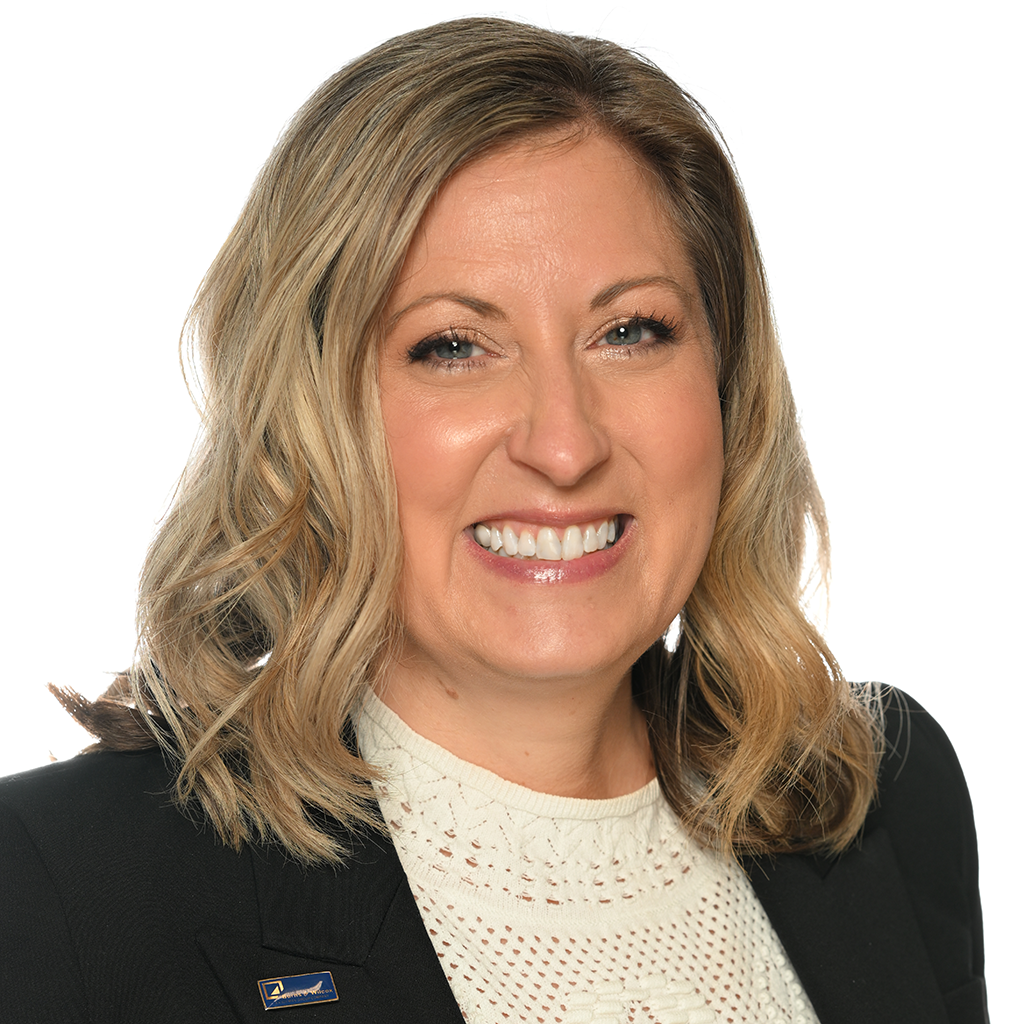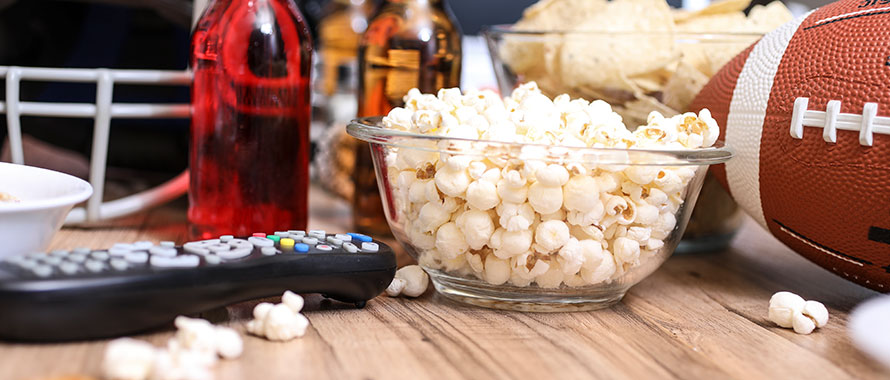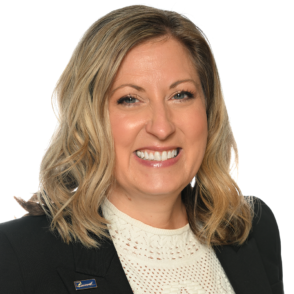The countdown to the big game is on as football fans across the U.S. prepare to watch the Los Angeles Rams take on the Cincinnati Bengals in Super Bowl LVI on Feb. 13. For many enthusiasts, the championship game is best enjoyed by hosting or attending a Super Bowl gathering with family and friends. According to a recent report, 90 million people were planning to throw or attend a Super Bowl party this year, up from 62.8 million last year.
This year, though participation in Super Bowl parties still may not reach pre-pandemic levels, many American and even Canadian households are likely to host gatherings, especially with COVID-19 party precautions in place. However, virus spread is not the only peril homeowners should consider when planning to host guests for Super Bowl Sunday. Any gathering in the home can be fraught with risks, from kitchen injuries to alcohol-related accidents to slip-and-fall incidents, which could all expose hosts to personal liability.
“Accidents happen,” said Heather Posner, Associate Vice President, Director, Private Client, Burns & Wilcox, Cleveland, Ohio. “Having a liability claim can be devastating, especially when the claim involves a friend or family member.”
Homeowners Insurance and Personal Umbrella Insurance are critical in these situations, Posner said, and some hosts may also need to consider Event Insurance.

Accidents happen. Having a liability claim can be devastating, especially when the claim involves a friend or family member.
“Hosts should think about their personal liability,” said Pamela Alphabet, Regional Practice Group Leader, Burns & Wilcox, Scottsdale, Arizona. “When you own a home, you can be held liable for a lot of things you might not think you would be. Homeowners Insurance policies provide very different coverages, terms and limits, so you need to understand the risks and whether you have coverage.”
With that in mind, consider these tips to help reduce the chance of an incident and ensure you will be covered by insurance if something does go wrong this Super Bowl Sunday.
1. Know your liquor liability
In 2021, a Morning Consult survey found that 44% of those who were likely to host or attend a Super Bowl party planned to serve or drink light beer, with many respondents also offering other alcoholic beverages. Given the popularity of alcohol at many Super Bowl parties, liquor liability should be a primary concern for hosts.
Alcohol has been shown to play a role in a wide range of injuries, from interpersonal violence and auto accidents to falls and drownings, according to a 2021 study by the National Institutes of Health. Among nearly 4.5 million injury-related deaths globally in 2019, about 7% were directly attributable to alcohol, NIH reports. In Canada, impaired driving is one of the leading criminal causes of death, killing up to 155 individuals and injuring 540 more in 2019, according to Statistics Canada.

If somebody is served liquor and they leave the party and hit a pedestrian or another driver, the individual who hosted that party could ultimately become liable. You could have permanent handicap, or death, and it could be a multi-million-dollar loss.
The legal term “social host liability” exists in most states, Alphabet explained, and refers to “the criminal and civil responsibility of someone that furnishes liquor” to a guest. “If somebody is served liquor and they leave the party and hit a pedestrian or another driver, the individual who hosted that party could ultimately become liable,” she said. “You If someone is left permanently handicap, or the accident results in death, it could be a multi-million-dollar loss.”
While Homeowners Insurance may cover expenses related to a liquor liability lawsuit, hosts should check with their insurance broker for any exclusions and ask about Personal Umbrella Insurance, which can provide additional limits to supplement their Homeowners Insurance coverage.
To help mitigate risks associated with serving alcohol, homeowners can limit guest consumption, stop serving alcohol two or more hours before their gathering ends, or consider hiring a bartender who will carry their own Liquor Liability Insurance and be trained to prevent overserving.
“Overserving alcohol is an obvious risk but serving any alcohol increases your risk of being held accountable for one of your guests’ negligent actions,” Posner emphasized. “You need to make sure that guests are drinking responsibly. The liability situations can play out in so many different ways, and it is very difficult to completely alleviate yourself of any negligence when it comes to alcohol, if you are going to serve it.”
2. Prioritize safety with basic ground rules
Each year, about 1 in 1,440 U.S. homeowners has a liability claim related to lawsuits for bodily injury or property damage, according to Insurance Information Institute calculations based on claims between 2015 and 2019. Liability losses accounted for between 2.3% to 3.9% of all Homeowners Insurance losses during that time period, III reported.
“Homeowners do not usually think about the possibility of a friend or family member potentially having a lawsuit against them for negligence when they decide to have a party,” Posner said. “The fact of the matter is that it happens more than we would like, and homeowners need to think about the things that create risk when they are hosting guests and what their responsibility for it is.”
Before guests arrive, hosts should communicate their expectations to their guests, Alphabet said. For example, homeowners planning to serve alcohol may require that those who consume it have a designated driver or use a ride-sharing service. If certain areas of the home are off-limits for safety reasons, let guests know in advance. “Make sure everybody knows the rules upfront,” she said.
This may also include keeping guests out of the kitchen, Posner said. “A lot of foot traffic in a kitchen can certainly create liability,” she noted. “If somebody is using a knife, a child could get injured because they ran into the kitchen.” Posner suggests thinking of your party more like hosting an event. For example, if you had caterers in the kitchen, they would not allow for guest foot traffic as it increases their liability. “If you or others are preparing food in the kitchen, this same increased risk is presented. Don’t allow for other guests to gather or come in and out of the kitchen in order to prevent injury.”
Living through a pandemic over the past two years may make the conversation around rules more natural for hosts, Alphabet suggested. “Since we have had coronavirus, there are so many events now that require vaccination or a test,” she said. “Many individuals are using that type of mitigation now, and so it may be long overdue for homeowners to be more comfortable setting ground rules for what happens in their house.”
3. Remove indoor, outdoor hazards
According to the Centers for Disease Control and Prevention, falls injure millions of Americans each year and 1 in 5 falls among older adults causes serious injury such as broken bones or injury to the head. In Canada, accidental falls sent almost 654,000 individuals to emergency rooms in 2016-17, including 8,800 falls related to slipping on ice, Global News reported.
“If you live in a cold-weather place, it is your responsibility to make sure that the driveway is clear and that your steps are shoveled, for example,” Alphabet said. “The more guests you have on your property, the greater the risk.”
Homeowners hosting Super Bowl Sunday parties should also consider potential dangers like loose rugs or slippery floors, fire risks from candles and food preparation, and tipping hazards posed by large televisions or furniture. Take caution when serving hot food, be aware of guest allergies, and try to avoid situations where rowdiness or arguments could lead to physical altercations, Alphabet advised.
“Of course you do not want physical harm to come to any of your guests, and certainly you do not want your guests to do physical harm to one another or to someone else after they leave,” Posner added. In addition to the risk of harm to a loved one, “all of those things could point to negligence on your part.”
Pets are another potential hazard, leaving guests vulnerable to bite or scratch injuries if the pet is not accustomed to guests in the home or is unexpectedly aggressive. Dog bite injuries in the U.S. accounted for about 337,103 emergency department visits each year between 2005 and 2013, according to a 2019 article published in the peer-reviewed journal Heliyon.
“The dog may be very friendly with the immediate family but when other guests arrive, and they do not know the mannerisms of the dog, dog bites can happen,” Posner said, adding that pets may need to be separated from guests. “Just like having a pool or trampoline, it is about protocols to prevent access that may result in injury.”
4. Determine whether your party needs Event Insurance
Although a Super Bowl party may seem like a casual gathering, homeowners planning for large crowds or a more elaborate event should know that they may be better protected by purchasing an Event Insurance policy. While there is no definitive line between a party and an event, signs that homeowners should consider Event Insurance include hosting a large number of guests, hiring outside caterers or other staff, or having a valet service. These single-day policies are usually quite affordable, Posner explained.

Event Insurance takes the burden off of the Homeowners Insurance and the question of whether you have enough coverage or if you are in a gray area. It offers the peace of mind that you are insured properly.
“Think about how many guests are going to be there and what your exposure is,” she said. “Event Insurance is usually a one-page application that their broker can fill out and quickly get coverage, and it can be very inexpensive. I do not think most homeowners even think about having Event Insurance when they probably should.”
Often used for weddings and other large celebrations in the home, Event Insurance can be an ideal solution for any host seeking another layer of protection against liability losses for injuries, altercations or even thefts. “It really takes the guesswork out of what is covered and what is not,” Alphabet said. “It takes the burden off of the Homeowners Insurance and the question of whether you have enough coverage or if you are in a gray area. It offers the peace of mind that you are insured properly.”
5. Expect the best, prepare for worst with Personal Umbrella Insurance
Many homeowners carry liability limits on their Homeowners Insurance of around $300,000 to $500,000, Posner explained. In the event of a serious accident, however, expenses can easily exceed that amount. Payouts may take into consideration medical costs, lost earnings and future loss of wages, along with pain and suffering and the cost of legal defense.
“These claims can get big and they can go on for a very long time. It just depends on the amount of negligence that occurred and the injuries sustained by the individual making the claim,” Posner said. “When the effect is more long-term, this is where you see these claims exceeding the amount of liability provided on one’s homeowner’s insurance and going into their Personal Umbrella policy limits.”
With a Personal Umbrella Insurance policy, homeowners can obtain much higher liability limits.

If you start thinking in the risk management mindset, you will have protocols and a checklist for any event. … That will likely reduce your risk of accidents or liability because of the approach you are taking.
“If a claim exhausts their Homeowners Insurance liability limits and more is awarded to the claimant, the remaining cost could be your responsibility, and your future earnings may be taken,” she said. “You might have to sell assets to be able to follow through with what the court has ordered to be paid to the injured party.”
“Everyone” should consider purchasing Personal Umbrella Insurance, Alphabet said. They should also take risk mitigation efforts seriously for even the smallest of gatherings, Posner added.
“If you start thinking in the risk management mindset, you will have protocols and a checklist for any event. Things will be in a certain order,” she said. “That will likely reduce your risk of accidents or liability because of the approach you are taking. Your insurance broker will also be able to give you guidance.”








